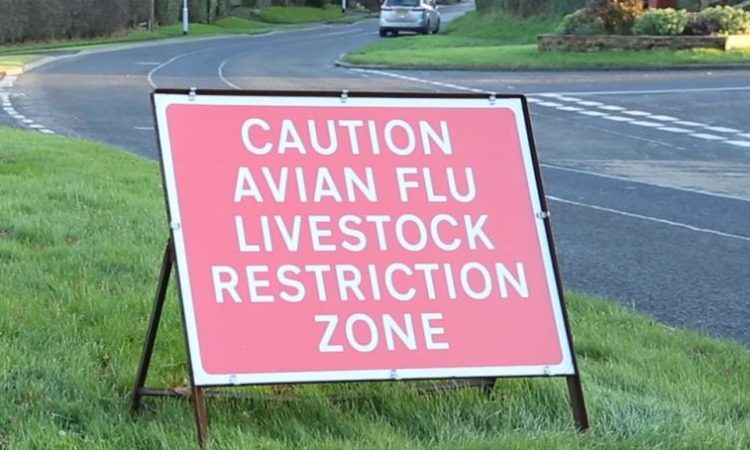National Farmers’ Union (NFU) Scotland is urging all poultry keepers – large and small – to comply with new biosecurity measures announced following confirmation of highly pathogenic Avian Influenza (bird flu) in wild birds and a backyard flock in Scotland.
Following confirmation of highly pathogenic avian influenza (HPAI H5N1) in the small flock near Arbroath, temporary control zones have been set up around the premise.
In addition to the Scottish cases, numerous cases in Wales and England have been reported, leading to the chief veterinary officers for England, Wales and Scotland agreeing to introduce a GB-wide Avian Influenza Prevention Zone (AIPZ) at 5:00p.m on November 3.
The AIPZ includes strict biosecurity measures that must be followed but does not include a requirement to house birds at this time.
With the increased risk of avian influenza during the winter, the need for a mandatory housing requirement in the AIPZ may arise.
The public are being also asked to remain vigilant and report any findings of dead wild birds to Defra’s national helpline
Protecting flocks
NFU Scotland’s poultry working group chair, Robert Thompson said:
“In light of the rising number of confirmed Avian Influenza cases across Great Britain, the introduction of these new biosecurity measures is the sensible next step to best protect Scottish poultry.
“Every poultry keeper, whether you have one hen in the back garden or a large poultry business, must take these biosecurity measures seriously and take steps to protect your birds from this devastating disease.
While housing is not currently a requirement, all poultry keepers must take this opportunity to review their contingency plans should a housing order, similar to that introduced in December 2020, be necessary later this winter
“Scottish and GB poultry keepers have had to live with the heightened threat of AI at this time of year for several years now, linked to wild and migratory birds.
“Many will have already prepared for this eventuality and it’s crucial that everyone, including the public, remains vigilant and reports any signs of disease in birds at the earliest opportunity.”

